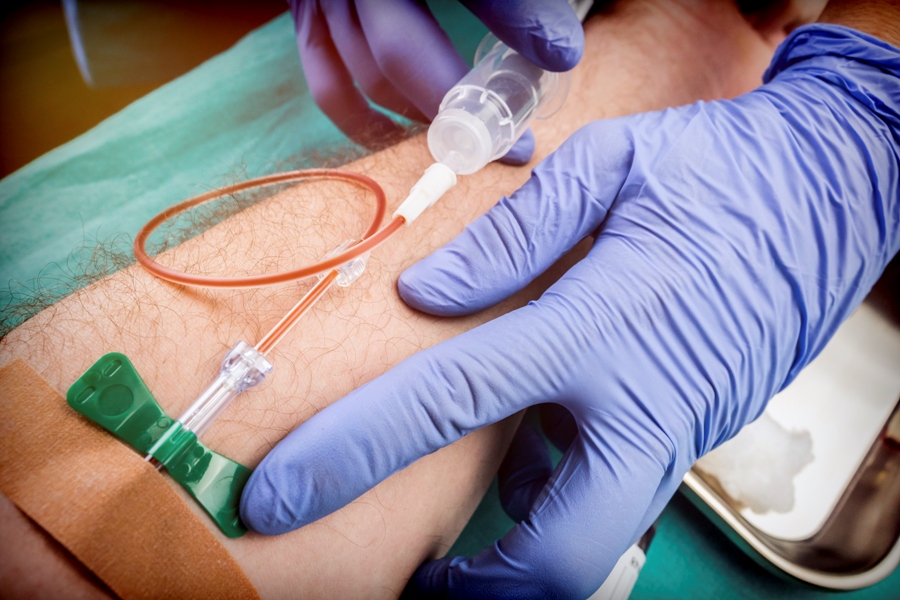Babesia infections and tick-borne agents transmitted through blood supply

“The threat to blood safety by tick-borne agents is ever-increasing and requires constant surveillance,” state the authors of a review article, which describes the risks of contracting a tick-borne illness, including a Babesia infection, through the blood supply. [1]
In their article, the authors summarized discussions from a public workshop, organized by the Food and Drug Administration (FDA). The workshop, addressing babesia and tick-borne infections entitled “Emerging Tick-Borne Diseases and Blood Safety,” included experts on tick-borne diseases, representatives from blood centers, academia, government agencies, and manufacturers of diagnostic kits.
The workshop’s goal was to review emerging tick-borne diseases within the US and discuss whether new blood safety measures should be implemented.
LISTEN TO PODCAST: Three premature babies who contract Babesia from blood transfusions
Babesia microti infections
As one attendee pointed out, Babesia microti infections has been the biggest problem for the blood supply to date. In fact, there were over 200 cases of Babesia microti infection transmitted through blood transfusion in the US at the time of the workshop.
Babesia microti can have moderate to high concentration levels in the blood, Dr. Peter J. Krause pointed out.
Aside from a Babesia infection, “Anaplasma is the most frequent transfusion-transmitted [tick-borne agent] with rapidly increasing clinical cases,” according to one attendee.
Borrelia burgdorferi in blood
In contrast, Borrelia burgdorferi, the bacteria that causes Lyme disease, has low concentrations in the blood.
And although B. burgdorferi can survive in fresh frozen plasma, RBCs, and platelets during blood storage, there have been no reported cases of Lyme disease transmitted through the blood supply.
Other tick-borne pathogens have been transmitted through donated blood, but these occurrences are rare.
- 11 cases: A. phagocytophilum, responsible for Anaplasmosis (transmitted by the Ixodes ticks)
- 2 cases: Tick-borne encephalitis virus complex (TBEV, Powassan virus, DTV), (transmitted by the Ixodes ticks)
- 1 case: Colorado tick-fever virus (transmitted by Rocky Mountain wood ticks)
- 1 case: Rickettsia rickettsii, the agent of Rocky Mountain Spotted Fever (transmitted by the Lone Star tick)
- 1 case: Ehrlichia ewingii (transmitted by the Lone Star tick)
[bctt tweet=”The threat to blood safety by tick-borne agents is ever-increasing.” username=”DrDanielCameron”]
In addition, “two emerging [tick-borne agents] − B. miyamotoi and Powassan virus were discussed − for B. miyamotoi, cases have steadily increased since 2014.”
But we still have much to learn. “B. miyamotoi, [responsible for tick-borne relapsing fever] is present in higher-titers in blood compared to B. burgdorferi, yet there are no cases of B. miyamotoi transmitted by blood.”
Screening donors to reduce transmission
By screening donors, America’s Blood Centers have been able to reduce some transfusion-transmitted infections, such as HIV, Hepatitis B virus and Malaria.
Between 1963 and 2013, there were reportedly 99 cases of malaria transmitted through blood transfusions. The majority occurred before 2000. But since 2000, the rates fell to less than 1 case per year, the authors explain.
Unfortunately, the screening process doesn’t always work. Studies have found that “donor responses to a history of tick-bites and donor responses to a history of babesiosis and Chagas” had no correlation to infection with tick-borne agents.
Related Articles:
Severe babesia infection leads to exchange transfusion
Transfusion-transmitted babesiosis popping up in more states
References:
- Mohan KVK, Leiby DA. Emerging tick-borne diseases and blood safety: summary of a public workshop. Transfusion. 2020.




Elly
06/07/2020 (9:25 pm)
With testing in the US for tick-borne diseases at a minimum, insurance only paying for the least comprehensive testing, if one is lucky enough to convince one’s doctor to order it, well, you see the trouble. I donated blood to Red Cross drives as often as I could until I became very sick.
When I finally got tested, through a naturopath, $400 out of pocket, then I stopped donating. Still the MDs and APRN would not acknowledge the results, because they didn’t order the test through their labs!
I’m so sorry to all who got my blood. Red Cross did not wish to trace my blood recipients.